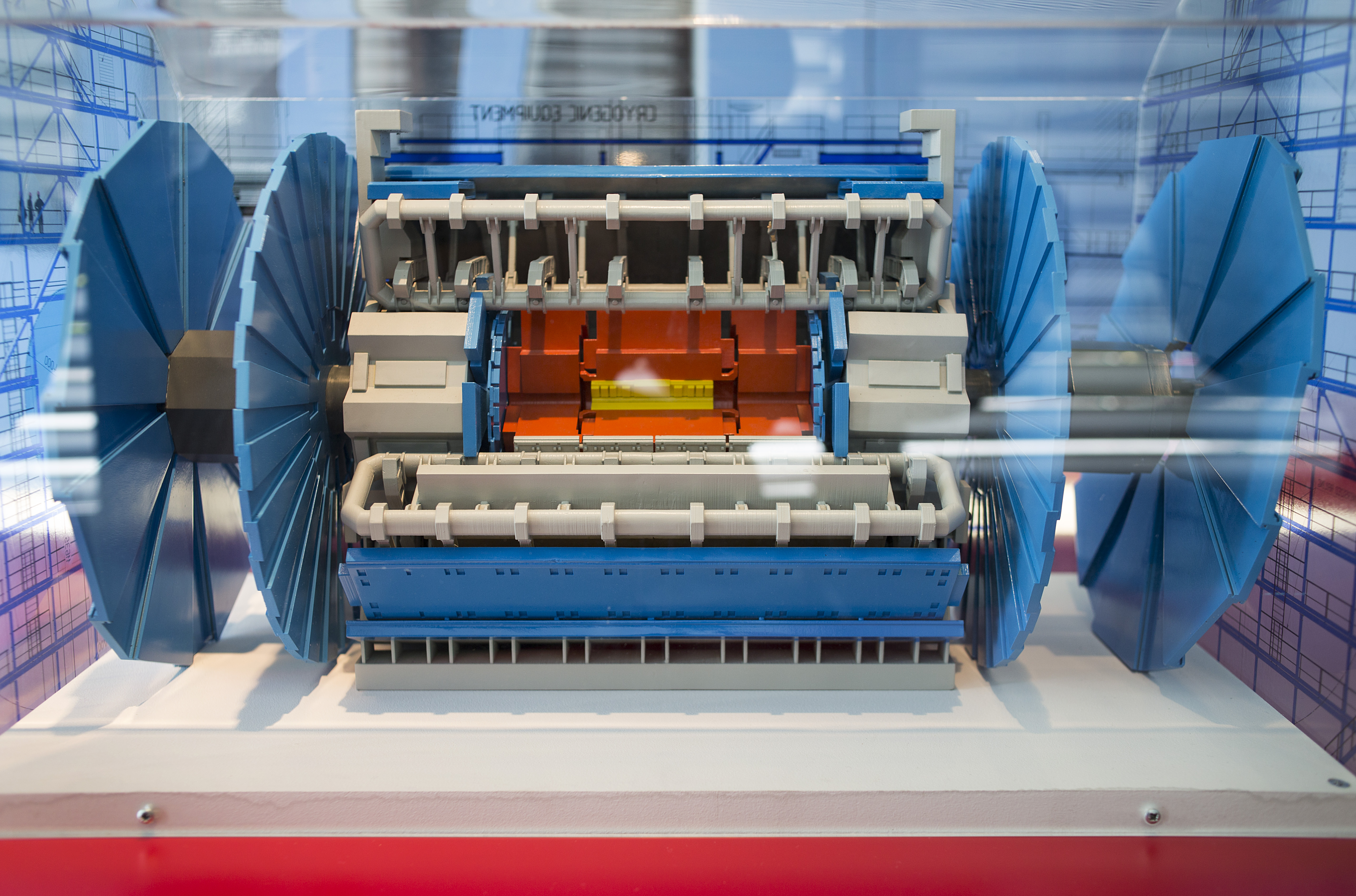
Large Hadron Collider shuts down for two years

Scientists at CERN have turned off the Large Hadron Collider (LHC) for about two years to enable a major upgrade and renovation work at the world’s most powerful particle accelerator.
Since 2015, the LHC has performed “beyond expectations”, the European Organization for Nuclear Research (CERN) said in a statementExternal link on Monday. It had achieved roughly 16 million billion proton collisions at an energy of 13 TeV and large datasets for heavy-ion collisions at an energy of 5.02 TeV.
These collisions produced an enormous amount of data, with more than 300 petabytes (300 million gigabytes) now permanently archived in the CERN data centre tape libraries. “This is the equivalent of 1,000 years of 24/7 video streaming!” said CERN, which is just outside Geneva.
“In addition to many other beautiful results, over the past few years the LHC experiments have made tremendous progress in the understanding of the properties of the Higgs boson,” said Fabiola Gianotti, CERN Director-General.
“The Higgs boson is a special particle, very different from the other elementary particles observed so far; its properties may give us useful indications about physics beyond the Standard Model.”
The new-and-improved LHC is planned to be switched on in spring 2021.

More
In the bowels of the monster

In compliance with the JTI standards
More: SWI swissinfo.ch certified by the Journalism Trust Initiative






























You can find an overview of ongoing debates with our journalists here . Please join us!
If you want to start a conversation about a topic raised in this article or want to report factual errors, email us at english@swissinfo.ch.